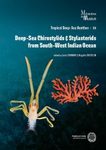Call us (08:30-17:00 UK)
01803 865913International
+44 1803 865913Need Help?
Help pagesWildlife Survey & Monitoring
Field Guides & Natural History
Academic & Professional Books
- Evolutionary Biology
- Evolution
- Human Evolution & Anthropology
- Cladistics, Phylogeny & Taxonomy
- View All
British Wildlife
British Wildlife is the leading natural history magazine in the UK, providing essential reading for both enthusiast and professional naturalists and wildlife conservationists. Published eight times a year, British Wildlife bridges the gap between popular writing and scientific literature through a combination of long-form articles, regular columns and reports, book reviews and letters.
Conservation Land Management
Conservation Land Management (CLM) is a quarterly magazine that is widely regarded as essential reading for all who are involved in land management for nature conservation, across the British Isles. CLM includes long-form articles, events listings, publication reviews, new product information and updates, reports of conferences and letters.

























![Atlas Français des Bactéries du Sol [Atlas of French Soil Bacteria]](http://mediacdn.nhbs.com/jackets/jackets_resizer_medium/24/245604.jpg?height=150&width=105)
![La Compensation Écologique: Concepts et Limites pour Conserver la Biodiversité [Ecological Compensation: Concepts and Limits for Biodiversity]](http://mediacdn.nhbs.com/jackets/jackets_resizer_medium/23/238426.jpg?height=150&width=103)













![Antoine-Laurent de Jussieu (1748-1836): Fabrique d'une Science Botanique [Production of Botanical Science]](http://mediacdn.nhbs.com/jackets/jackets_resizer_medium/25/259747.jpg?height=150&width=103)
![Les Chauves-Souris de Guyane [The Bats of French Guiana]](http://mediacdn.nhbs.com/jackets/jackets_resizer_medium/13/134247.jpg?height=150&width=100)




![Enraciner l’Empire: Une Autre Histoire du Jardin Botanique de Calcutta (1860-1910) [Grounding the Empire: Another Story of the Calcutta Botanical Garden (1860-1910)]](http://mediacdn.nhbs.com/jackets/jackets_resizer_medium/25/255857.jpg?height=150&width=103)

![Atlas des Mammifères Sauvages de France, Volume 3: Carnivores et Primates [Atlas of Wild Mammals of France, Volume 3: Carnivores and Primates]](http://mediacdn.nhbs.com/jackets/jackets_resizer_medium/26/263780.jpg?height=150&width=106)
![Flora of Cambodia, Laos and Vietnam, Volume 36 [Faune et Flore Tropicales, Volume 47]](http://mediacdn.nhbs.com/jackets/jackets_resizer_medium/24/245033.jpg?height=150&width=101)
